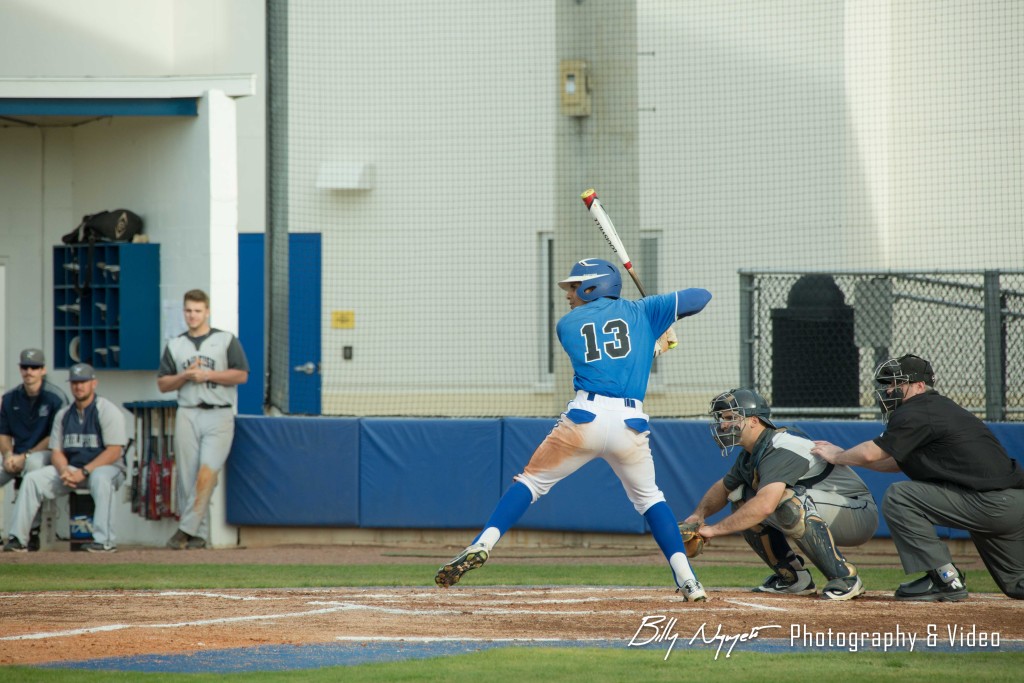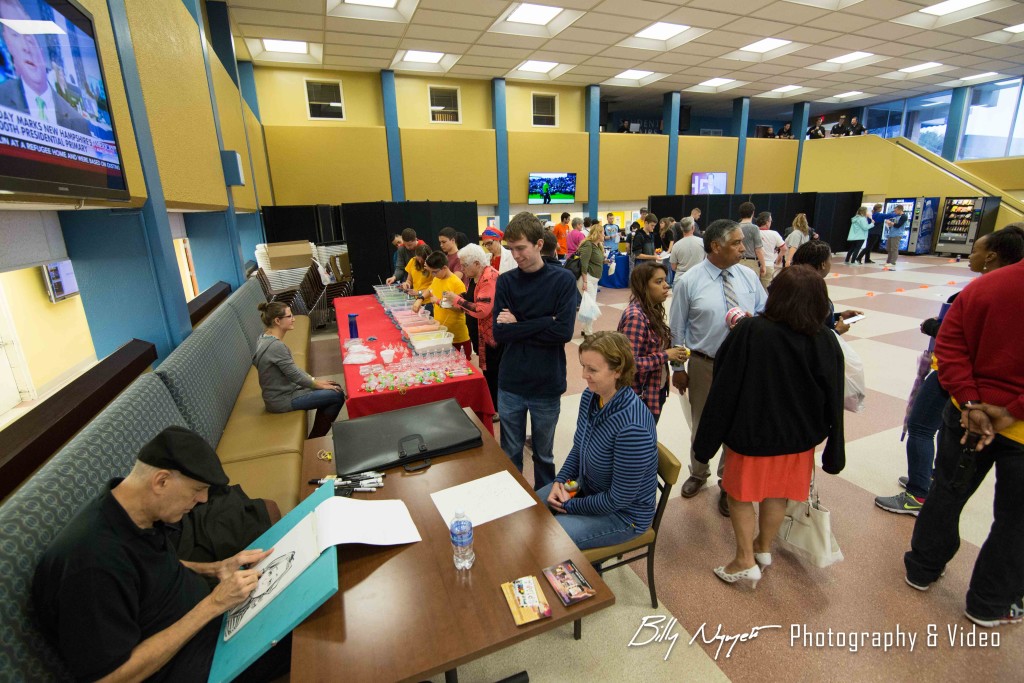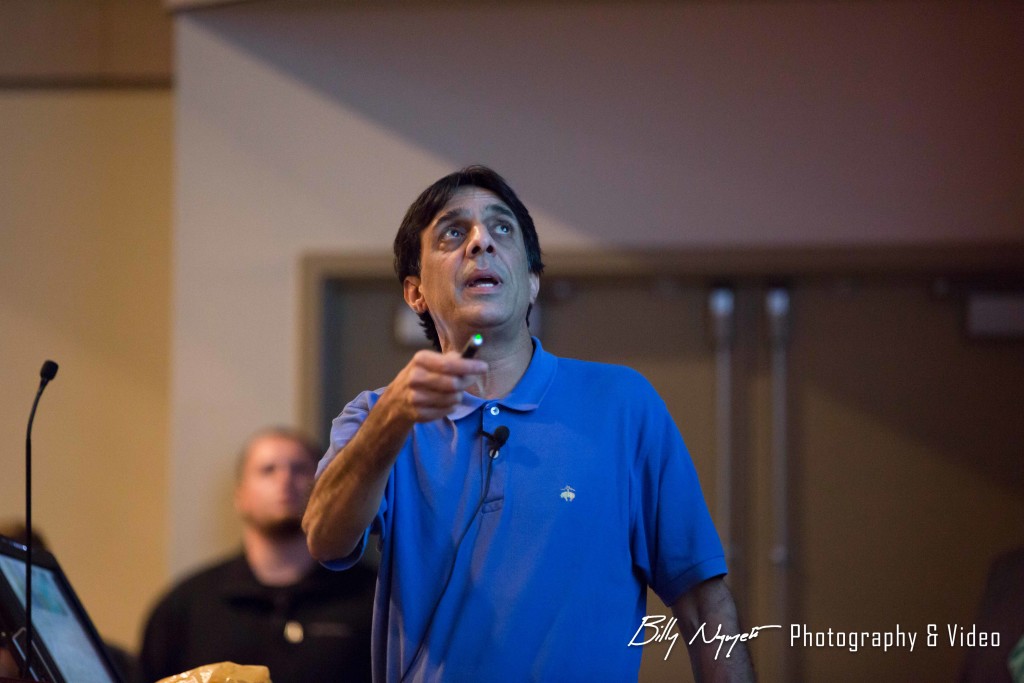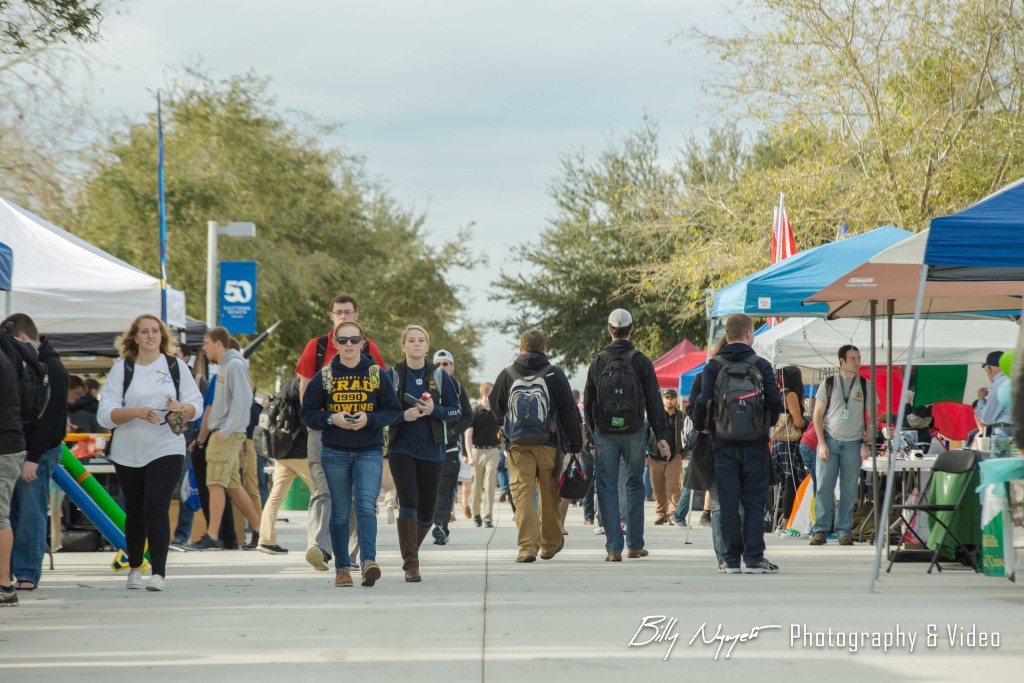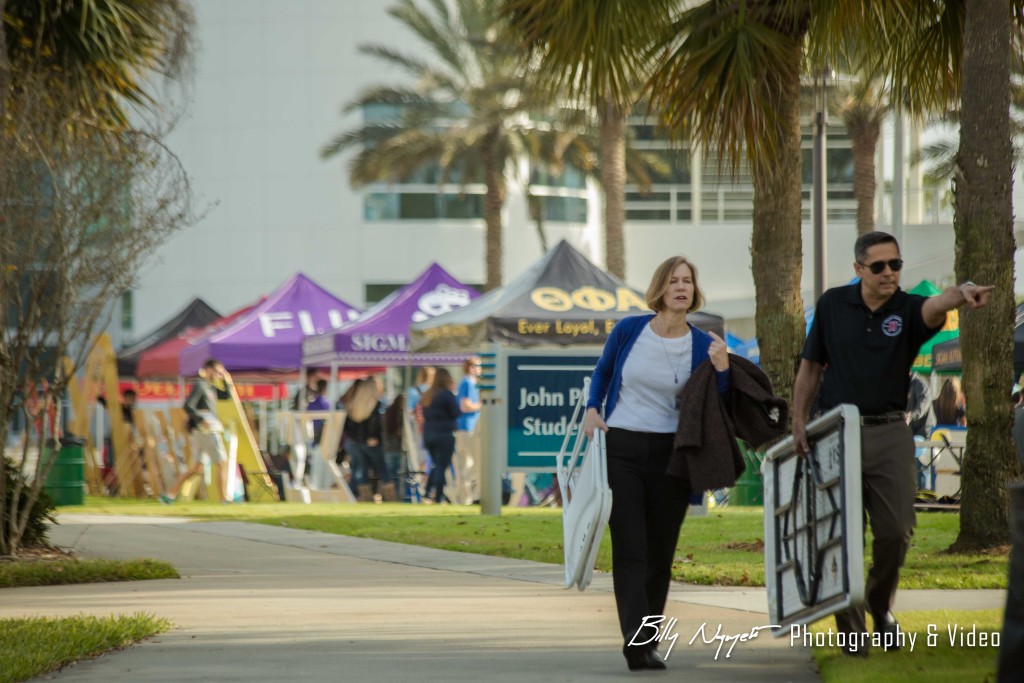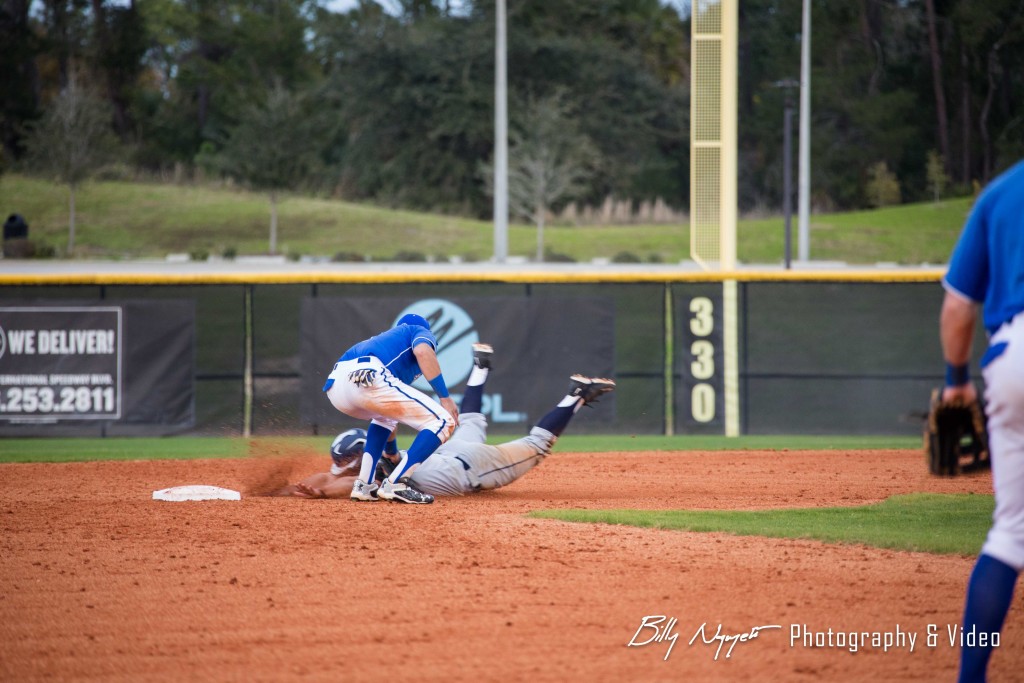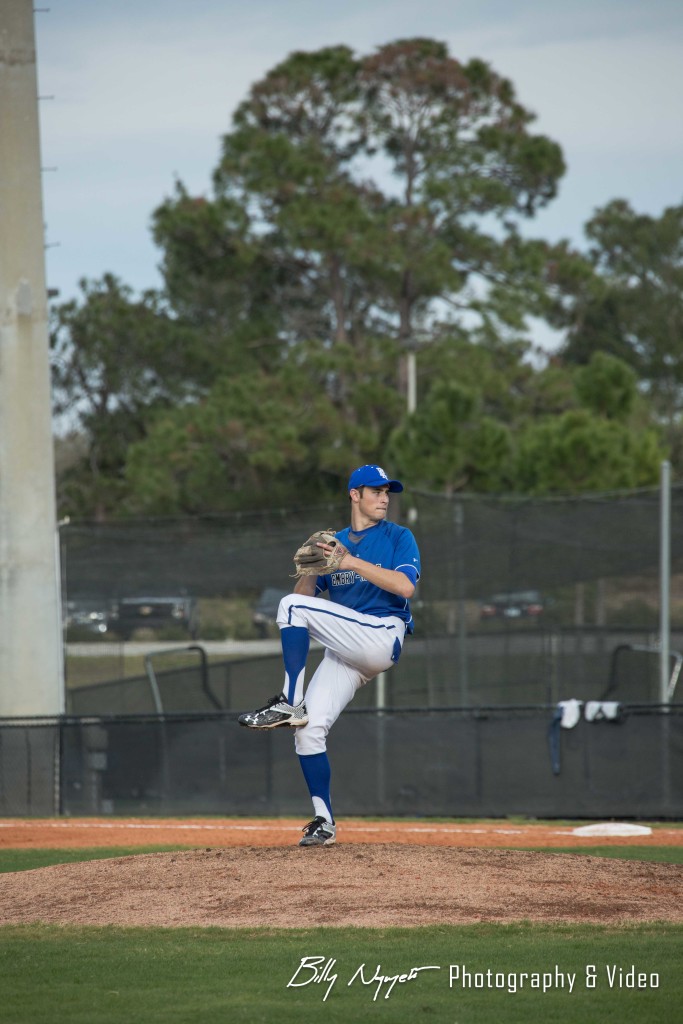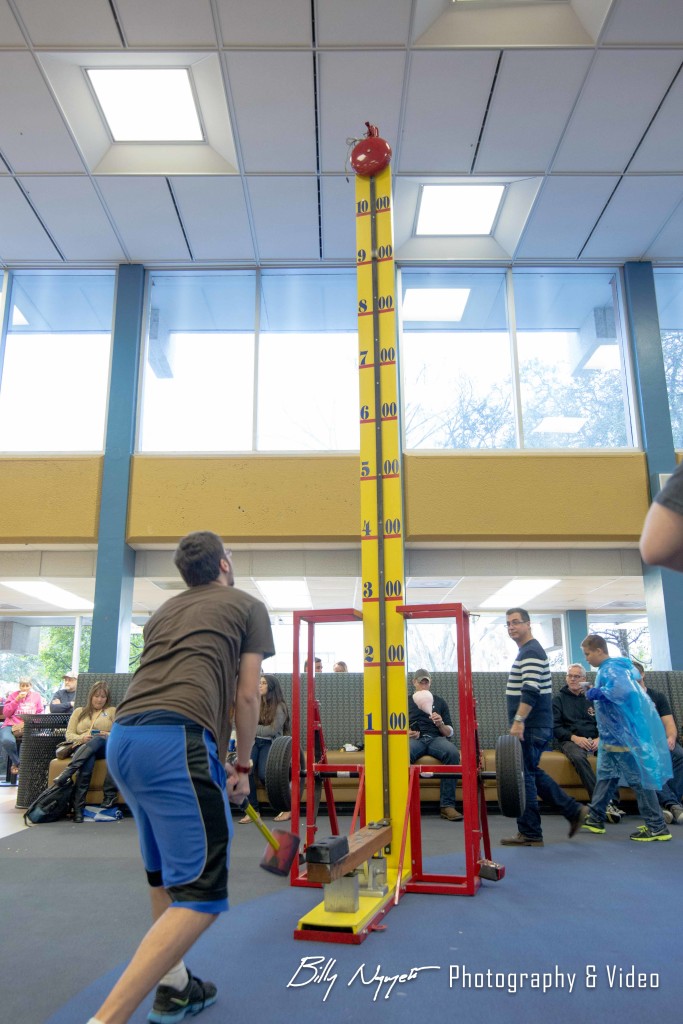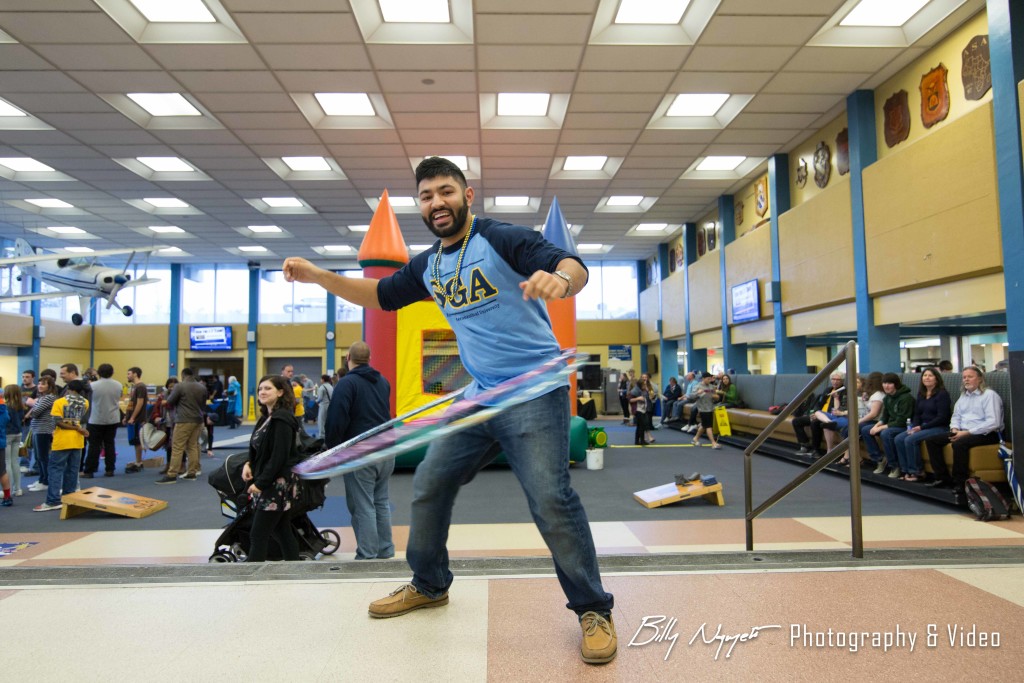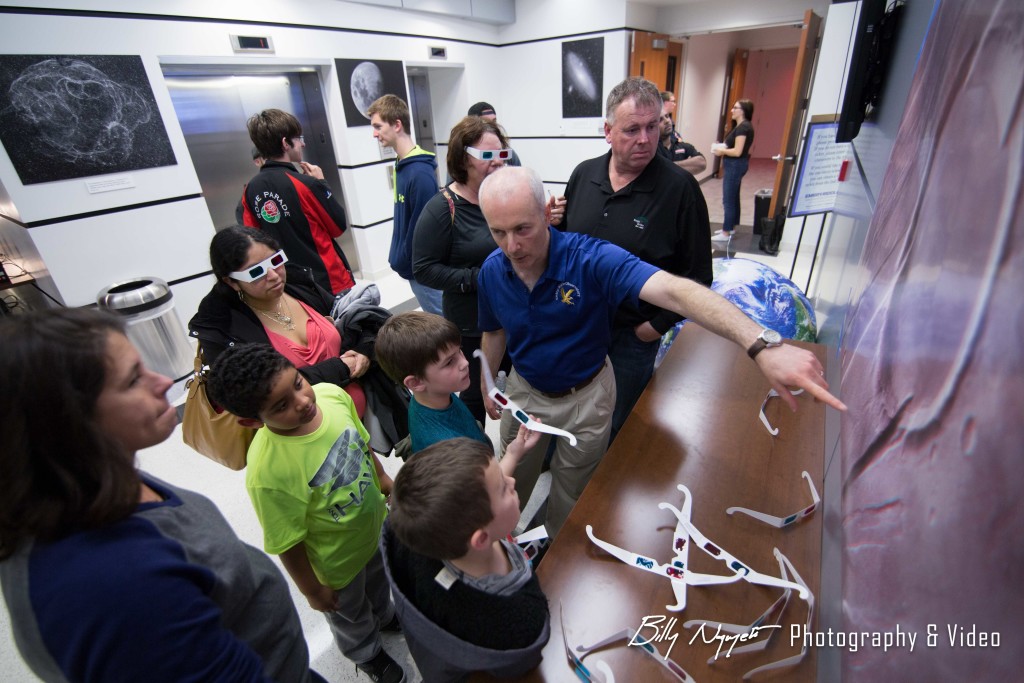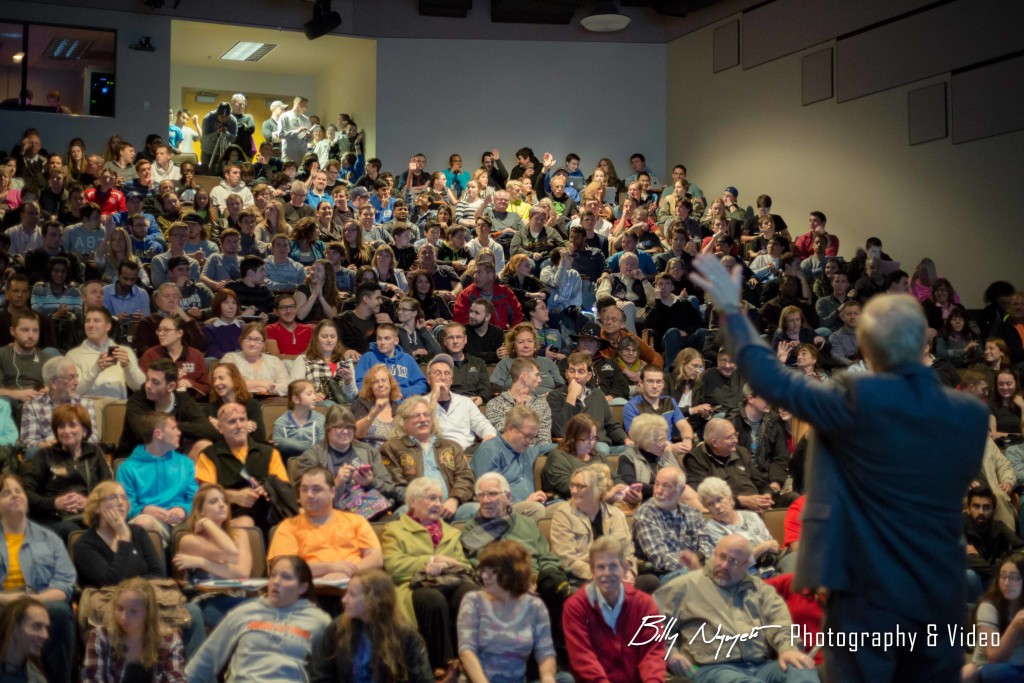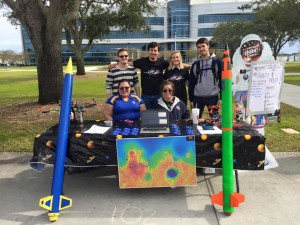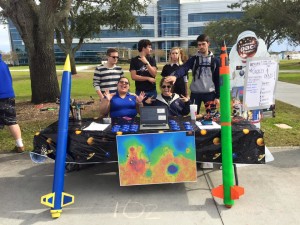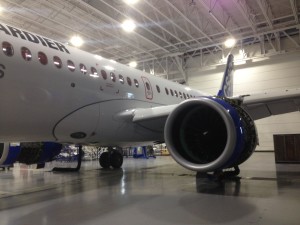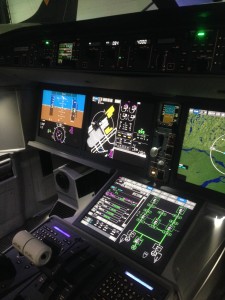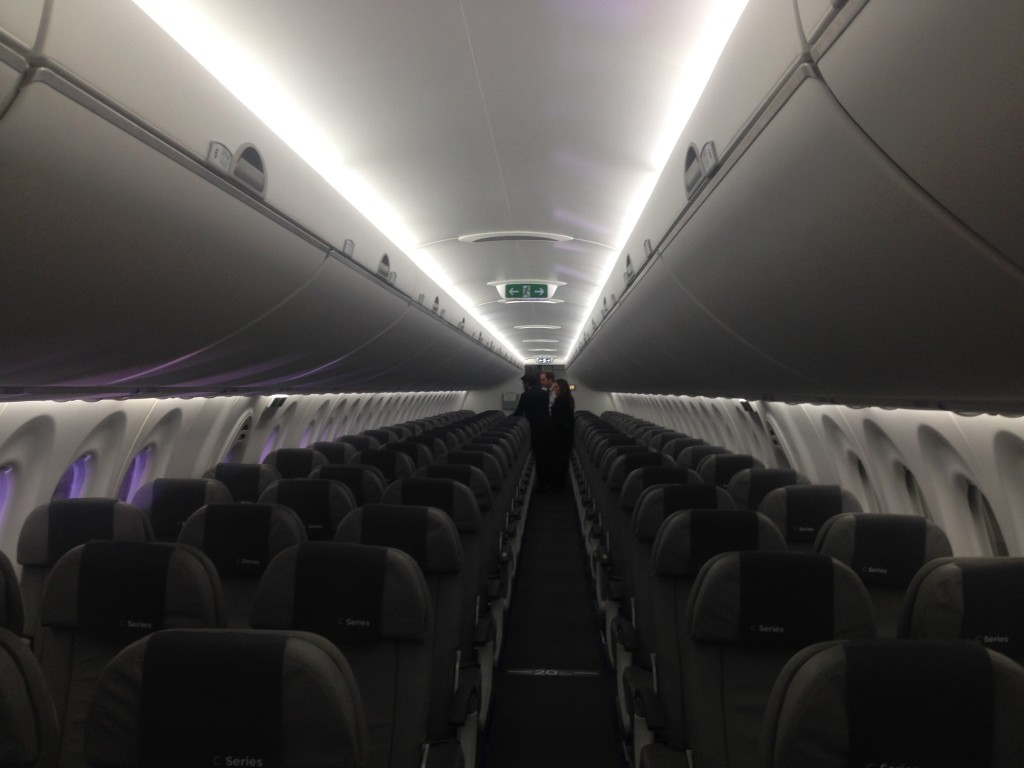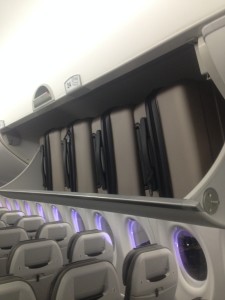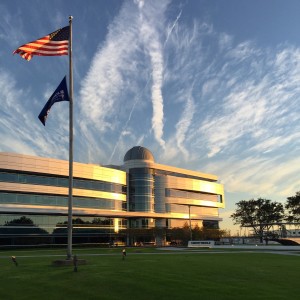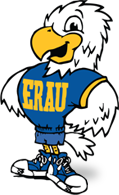Hello, everyone! It’s been awhile since I have written a post, but I was very busy over the last month! I hope everyone had an awesome break, and is ready to resume classes! I decided it would be fun to let you know what I did for part of my winter break.
The highlight of my break was getting to travel to Thailand for the first time!! I have never been off of North America, so it was a definite culture shock to travel to Southeast Asia. I went with my boyfriend and his family. The purpose of the trip was to attend one of their friends’ weddings in Bangkok.
We started our trip by flying from Orlando to Seattle. I spent one night at home in Seattle and then headed to the airport again in the morning. We flew to Vancouver, Canada, and then had another connection in Seoul, South Korea, before we reached Bangkok, Thailand. We flew Korean Airlines, which turned out to be an amazing experience. Their hospitality was incredible. I would definitely recommend them if you are flying to Asia. We also got to fly on some pretty cool jets! I was so excited to fly on a Boeing 777-200 and an Airbus A380-800. I had never been on a plane that big!
After a full 24 hours of traveling, we finally made it to our hotel in Bangkok. I was surprised at how westernized the hotel was. I was expecting something incredibly different. After we were rested, we spent our first day at a popular weekend market just outside of downtown. The market had 8,000+ vendors, and had everything you could imagine! We spent hours looking at all of the food, clothing, flowers, and gifts that were for sale. I was amazed how people navigated around inside of the market… It was like a maze! Later that day I got to eat my first authentic Thai meal. We ate some food from a street vendor, which was actually better than I expected. I was shocked at how inexpensive everything was in Thailand. We could get a full meal for 100 Baht, or $3.00 USD. It was awesome!
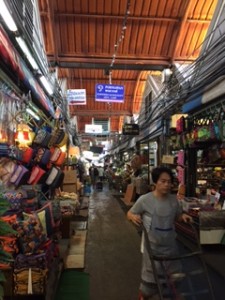
Inside the weekend market
That night we went to the wedding. I had no idea what to expect, since I had never been to a Thai wedding before. It was held in one of the hotel ballrooms, and was very beautiful. There were probably 200-300 people in attendance, and almost everyone was standing the whole time. Their wedding cake was 13 tiers high! We later realized that the top was fake, so it was really only 3 tiers of actual cake. I still do not really know what happened at the wedding, since it was all in Thai, however, everyone seemed very happy, and that’s all that really matters in the end!
Over the next few days, we spent a lot of time exploring the culture of Thailand. We visited various palaces and wats (temples), and even the ancient kingdom of Ayutthaya (once the capital of Thailand). All of them were covered in real gold. It was incredible. There were statues of Buddha everywhere, since he is a big part of their culture and religion. We also got to take a longboat tour of a small island in Thailand. I loved this tour because we got to see the authenticity of Thailand, rather than just the westernized city buildings. We got to see many houses on the river, as well as stop at markets along the water. I was very intrigued by their simple way of life.
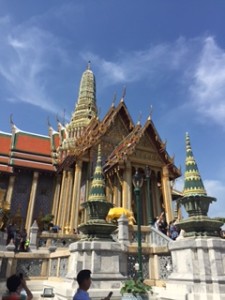
A building on the grounds of the Grand Palace in Bangkok
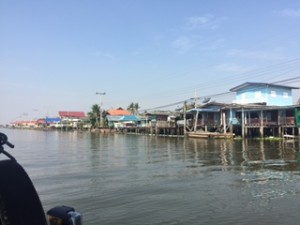
Houses on the river
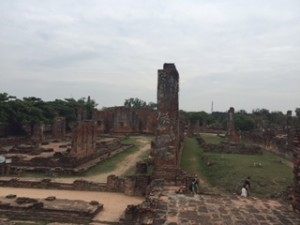
Ayutthaya, the ancient capital of Thailand
One of my favorite parts of the entire trip was getting to visit my boyfriend’s old foster home, and foster family. He was adopted from Thailand when he was very young, and is very fortunate to get to go back to see his foster parents. We drove out to the countryside to their house, and all piled out of our 8 passenger van. I cannot even begin to describe the joy his foster mom had when she saw her “son” walking up the road. Even though we did not speak the same language, emotion spoke louder than words during the hour we spent with them. I was truly touched by the kindness and the overwhelming joy that was felt by everyone that day. I believe I will never forget that experience.
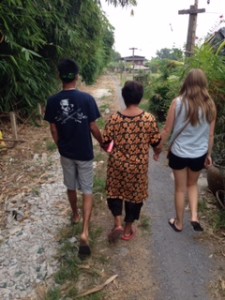
Walking down the road to the foster home
After four days in Bangkok, we flew down to Phuket, which is a popular tourist destination. It is a small island south of the mainland in Thailand. It was the most beautiful place I have ever been. We stayed in a town called Patong Beach, which is located in a little inlet. Our resort was incredible. Our hotel room was literally right on the beach, so we slept with the patio door open to listen to the sound of the waves. It was truly paradise.
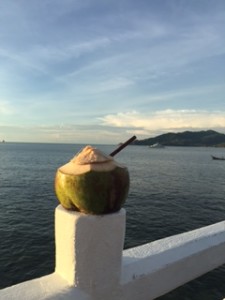
The view from the resort in Phuket, featuring my coconut.
While we were in Phuket, we took part in several different adventures. The first was a boat tour around the Andaman Sea, on Christmas Day. It honestly didn’t feel like Christmas at all, besides the fact that the boat drivers said ‘Merry Christmas’.The water was crystal clear, and the rock islands stuck out of the water all around us. However, it was a Christmas well spent. The boat tour was an entire day trip. We got to go snorkeling, climb through a cave, go canoeing, see ancient cave drawings, eat lunch on the floating town of Koh Panyi Pang Nga, visit James Bond Island, as well as feed monkeys! Needless to say, it was the experience of a lifetime. The last stop we made was on a small uninhabited island. Once we pulled up to the beach, we saw five monkeys hanging out on the sand. We got to feed them pineapple and watermelon, however we had to keep our distance.
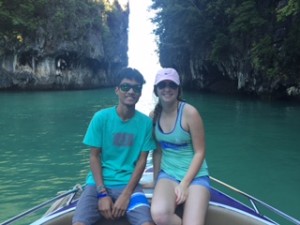
In a small cove during the boat tour
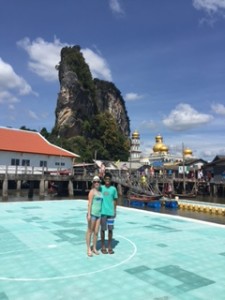
The infamous floating soccer field
The last two adventures we took were scuba diving and elephant riding. Scuba diving in Thailand was officially checked off of my bucket list, but just barely. I almost didn’t complete the dives because I got so seasick on the hour and a half boat ride to the dive location. Thankfully, once we made it to the location, the waters were calm and my sickness subsided. We completed two dives that day, and got to see so many tropical fish, and even an eel!! The water was so warm some people didn’t even use a wetsuit. Once we completed the dives, I was eager to get in the water for one last time, and sad that we had to leave.
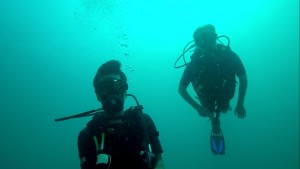
Scuba diving in the Andaman Sea
The last day we spent in Phuket was full of elephants. We drove up the hills to an elephant camp. We got to feed baby elephants, as well as drink authentic Thai tea, before we rode. Riding the elephant was surprisingly scarier than I thought it would be. It was two people to an elephant, and I felt like I was going to slide off the top of him the entire time. We rode them through a forest on the edge of a hill, and although it was scary, the views were spectacular. What I thought was crazy was that each elephant lives with their trainer their entire life!! The trainers cannot leave for more than a week per year because the elephant will get very sad. I had no idea!
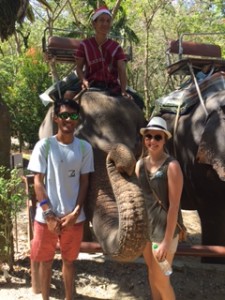
After we got off of the elephant
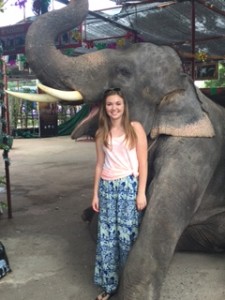
Posing with another elephant from earlier in the trip
After all of the amazing adventures in Thailand, I was so sad to leave. Thailand is such an amazing country, filled with very happy people. I feel so blessed to have been able to travel there, and will count down the days until I am able to visit again.
Until next time,
Lindsey
